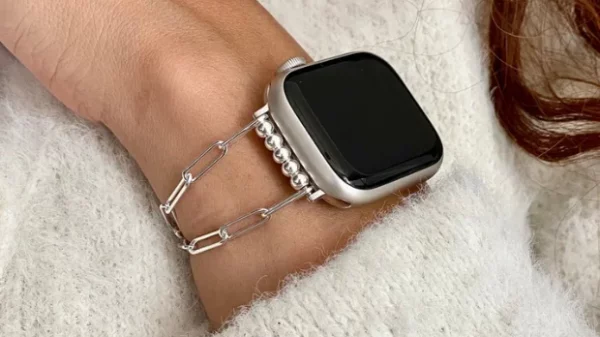
Setting Up VPN For Android Made Easy And Accessible | hermagic
A VPN refers to Virtual Private Network, a network which allows you to access the internet and other servers with anonymity, provides you protection against hackers and dangerous sites/links, and lets you browse using a different IP address which ensures your safety. Continue reading to learn how to set it up manually or using an app, why you should buy one and what things should you keep in mind while buying one.
How to turn on VPN on Android
Step 1: Open the Settings menu of your phone by going to the network settings page by clicking on “Wi-Fi & Internet/Network and Internet/Wireless & networks”.
Step 2: Now tap on the “VPN” button. If it is not visible then select “More” to see all the options available. Enter a VPN search if your VPN isn’t displayed.
Step 3: You will see a plus sign at the top right corner, tap on it. If it is not visible then tap on the 3 vertical dots icon to open the advanced options menu.
Step 4: Next, enter all the required information such as the server’s address, username, and password. It will be given to you by a VPN provider or network administrator.
Step 5: After completing all the details, click on “Save.”
Note: If you want to disconnect the VPN on your Android Device, then simply select the gear icon of the VPN and then: click on “Turn off VPN” for disconnecting, or “Forget” to forget the network.
How to install a VPN on an Android device with an app

How to install a VPN on an Android device with an app | hermagic
Step 1: From your Android device, visit the website of the VPN to download it on your device by selecting “Download.”
Step 2: After it has been downloaded, click on “Install.”
Step 3: Select the “Open” option when prompted.
Step 4: Now launch the VPN App and then enter your credentials.
Step 5: You will see a power button in the App. Click on it to connect to the VPN.
Note: If you want to disconnect, click on it again.
Things to look for when buying a VPN for Android
When you are buying a VPN for Android, there are a lot of things to keep in mind and consider, apart from their ratings on the App Store:
- Privacy: Always look for the one which is based in a country that is not a member of the surveillance alliance called the Five Eyes, Nine Eyes, or 14 Eyes. Also, look for a VPN for Android that has a strict no-logs policy so that it does not save any of your web activity or your IP addresses and encrypts them with AES-256.
- Features: You should look for a VPN which has advanced features such as allowing access to various servers on multiple devices at a time (dynamic IP addresses), works well with streaming platforms such as Netflix and has torrenting capabilities, kill switches, split tunnelling, etc.
- Speed: Some VPNs can really slow down your internet so it is important that you look for one that doesn’t affect your connection much and is super fast in terms of uploading/downloading speed and latency, especially if you’re a gamer who needs to use the VPN to stream.
- Pricing: Almost all VPNs give the option to use a 30-day free trial along with a money-back guarantee. You can test them out risk-free. But we prefer you buy a paid VPN which will unlock more features for you to access. The average cost of a VPN is around $5 to $10 a month, but you can also avail of discounts upon signing up for longer subscription plans.
The importance of getting a VPN for Android

Setting Up VPN For Android Made Easy And Accessible | hermagic
You might want to use a VPN for Android for a variety of reasons:
- Security and Privacy: VPNs feature AES-256 Encryption which encrypts your web activity and your device’s IP addresses, ensuring the anonymity of your browsing activity.
- Public Wi-Fi: Connecting to a public Wi-Fi network can leave you as an easy target for hacking by making your private IP address visible. However, if you are using a VPN for Android, there is less risk of using a public WiFi network because it ensures your safety.
- Torrent: Using VPNs for torrenting means that you can download anything you want because your ISP (Internet Service Provider) cannot monitor your activity.
- Access to private networks: The best VPN for Android includes the split tunnelling feature, which enables you to be on a private network as well as your Wi-Fi at the same time. You can connect your phone’s network to a private one, such as your school or workplace network, when you’re not present there.
- Streaming: Streaming-compatible VPNs will let its users get access to content from other countries’ libraries, making geo-restricted content also accessible on various streaming platforms such as Netflix, Hulu, Amazon Prime, etc.
- Bypass restrictions: You can make your VPN undetectable and bypass the restriction. Not only in schools and workspaces but Internet censorship is also restrained in many countries such as China and Russia. VPNs can let you surf the web freely by helping bypass these restrictions.
- Secure VoIP calls: VPNs can secure Voice over Internet Protocol calls, which is a technology that lets VPN users make voice calls over a broadband internet connection instead of a landline (regular/analog). This is helpful if you want to have a secret private conversation.
Conclusion
A VPN (Virtual Private Network) is a technology that allows you to create a secure and encrypted connection between your device and the internet. A VPN for Android encrypts all the traffic between your device and the internet, making it difficult for anyone to intercept or eavesdrop on your online activity. This is particularly important if you’re using public Wi-Fi networks or if you’re accessing sensitive information. It can provide you with a level of anonymity online by masking your IP address and location. This can be particularly useful for journalists, activists, or anyone else who wants to avoid being tracked or identified online. Overall, a VPN can help you stay safe and secure online, protect your privacy, and access content that may be restricted in your region. For more information, visit Hermagic.
FAQs








































































